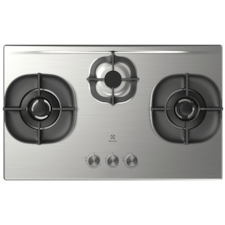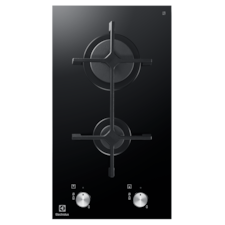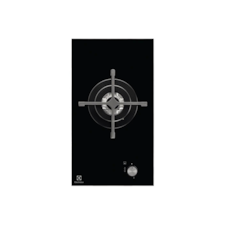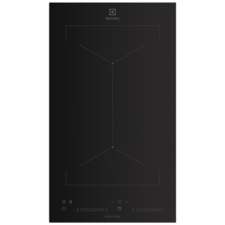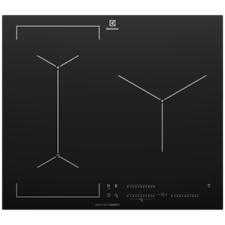When it comes to choosing the right stoves and hobs for your kitchen, the age-old debate often boils down to gas versus electric hobs. Each comes with its unique set of advantages and potential drawbacks, making the choice slightly challenging.
We’ll be examining the differences between gas stoves and electric stoves to help you choose the best option for your cooking needs and lifestyle. Whether you're an experienced chef or a home cook, knowing the key differences between these hobs can greatly affect your cooking experience.
Choosing the right hob is more than picking a heat source — it's about matching your cooking style, kitchen lifestyle, and safety needs. Whether you prefer traditional stir-frying or want a sleek, energy-efficient cooktop that keeps your family safe, this guide will help you make a confident choice between gas and induction hobs tailored to your Singapore home.
What Are Gas Hobs and Induction Hobs?
Gas hobs
Gas hobs use City Gas (PUB) or LPG to produce an open flame, providing direct, visible heat control. Favoured in many Asian kitchens, they're perfect for high-heat cooking methods like stir-frying, searing, or deep frying. Many HDB flats and condos in Singapore have built-in gas lines for easy installation. 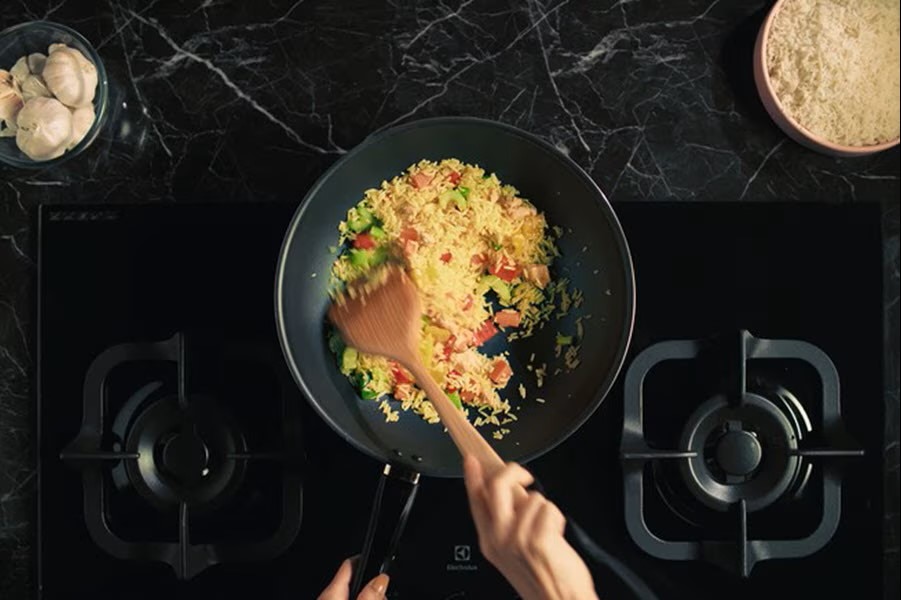
Induction Hobs
Induction hobs use electromagnetic fields to heat only the base of compatible cookware, making cooking faster and more energy efficient. Their flat glass surface stays cool to the touch except under the pot, offering enhanced safety and effortless cleaning. Induction is gaining popularity in modern Singapore kitchens.
Gas vs Induction Hob: 6 Critical Differences to Know
Choosing between a gas and electric hob often comes down to your individual cooking habits, the setup of your kitchen, and your budget constraints. Let’s break down these factors:
|
Feature |
Gas Hob |
Induction Hob |
|
Heat Control |
Instant flame, easy to adjust |
Rapid and highly precise temperature settings |
|
Cookware Compatibility |
Works with all cookware types |
Requires magnetic-base cookware (e.g., cast iron, stainless steel) |
|
Safety |
Open flame, risk of leaks |
No flame, cool glass surface, child-lock options available |
|
Cleaning |
Needs cleaning of grates burners |
Smooth glass surface wipes clean easily |
|
Installation |
Needs gas connection and ventilation |
Requires electrical connection (15-32A circuit) |
|
Energy Efficiency |
Around 60% efficient |
Up to 90% energy efficient |
Pros and Cons: Gas vs Electric Hobs
Gas Hob
Pros:
- Immediate visual flame for intuitive cooking control
- Compatible with any type of cookware
- Ideal for traditional wok cooking and high-heat techniques
Cons:
- Harder to clean because of grates and burners
- Safety risks from open flame and potential gas leaks
- Produces ambient heat, warming the kitchen
Induction hob
Pros:
- Safer with no open flames and a cool-to-touch surface
- Fast, accurate heating for cooking
- Easy to clean with a smooth, flat surface
- More energy efficient, leading to cost savings over time
Cons:
- Compatible cookware is required (some pans won’t work)
- Higher initial purchase and installation cost
- May produce a faint humming sound at high power levels
Gas vs Induction Hob: Which Is Better for You?
If you love traditional Asian cooking styles, using woks for stir-frying and searing, gas hobs remain the popular choice. Their visible flame and universal cookware compatibility give you ultimate control.
If safety, ease of cleaning, and energy savings are your priorities—especially in family homes—induction hobs offer an excellent modern alternative. Many Singapore households now incorporate a hybrid setup, benefiting from both technologies where each excels.
Is Gas Cheaper Than Electricity for Cooking?
In Singapore, city gas costs approximately 20.7 cents/kWh, electricity stands at about 29.88 cents/kWh (EMA forecast 2025). Despite gas being cheaper per unit, induction hobs convert energy to heat more efficiently (up to 90%) vs gas hobs (~60%). This means induction can be more cost-effective depending on your usage and cooking habits.
Why Choose Electrolux Gas and Electric Hobs
Experience superior cooking with Electrolux hobs and hobs, offering a blend of quality and innovation for the modern kitchen. Here's what makes them a standout choice:
High-quality glass cooking surfaces
Electrolux stoves come with top-tier glass surfaces that are pleasing to the eye and easy to clean, minimising the risk of scratches for long-term use.
Sensitive touch controls
Move past the hassle of knobs with Electrolux's intuitive touch controls, allowing precise and easy adjustment to your cooking settings.
Induction technology
Electrolux cooktops employ advanced induction technology, heating only the area directly beneath the pan while keeping the surrounding surface cool for safety and easier cleaning.
Energy efficiency
With today's focus on energy conservation, Electrolux induction hobs are faster and more energy-efficient, letting you prepare your favourite dishes quickly while using less energy.
Additional Factors: Installation, Cookware, and Noise
Installation
Gas hobs require professional gas line installation and adequate ventilation. Induction hobs need a suitable electrical outlet (often 15A to 32A) and should be installed by a qualified electrician.
Cookware
Induction requires cookware with a magnetic base, such as cast iron and some stainless steel. Aluminium, glass, or copper pans won’t work unless specially designed for induction.
Noise
Induction hobs may emit a subtle humming or buzzing at high heat, especially with lightweight or thin pans. This is normal and safe.
FAQs: Choosing Between Gas and Electric Hob
-
How do I maintain the longevity of my hob?
Regular cleaning and following the manufacturer's guidelines can help maintain the longevity of both gas and electric hobs.
-
Can I install my hob myself?
It's advisable to have a professional install your hob to ensure safety and proper functionality. -
What cookware is suitable for electric hobs?
Flat-bottomed cookware is ideal for electric hobs to ensure proper contact with the heating element.
-
Are there any safety features I should look for?
Look for features like automatic shut-off, child lock, and hot surface indicators for enhanced safety.
Top Gas & Electric Hobs from Electrolux Singapore
Choosing a stove is one of the most important appliance decisions you will make. To streamline your search for the perfect fit, explore our high-quality gas hobs:
-
- FlameShield improves efficiency and results.
- High power burner is ideal for stir-frying.
- Flexi cut-out for easy kitchen installation.
-
- Blue flame burns efficiently to lower energy cost.
- Durable, easy-to-clean ceramic glass surface.
- Cast iron supports keep pots and pans stable.
-
- Blue flame burns efficiently to lower energy cost.
- Durable, easy-to-clean ceramic glass surface.
- Cast iron supports keep pots and pans stable.
Check out our electric hobs:
-
- SenseFry adjusts heat for even frying results.
- PowerBoost provides quick, intense heat.
- Flexi cut-out for easy kitchen installation.
-
- Select the bridge function to combine two zones.
- PowerBoost provides quick, intense heat.
- Induction is safe, fast, and energy efficient.
-
- SenseFry adjusts heat for even frying results.
- Select the bridge function to combine two zones.
- PowerBoost provides quick, intense heat.

